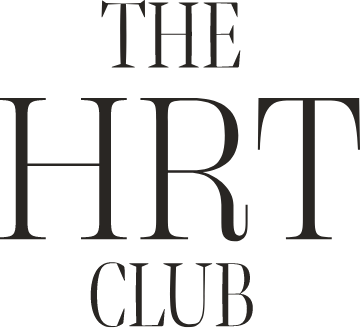Attribution: Image by Freepik
Research Suggests Hormone Replacement Therapy (HRT) Can Help Preserve Strength, Movement, and Muscle Mass After Menopause
Medically Reviewed by Andrea Caamano, Director of Medical Affairs, The HRT Club
As women transition into menopause, they often face a range of physical changes—including a natural decline in muscle mass, strength, and mobility. These changes are not just cosmetic; they have real consequences for independence, fall risk, and overall health. But research, including a twin study published in the Journal of Applied Physiology, suggests that hormone replacement therapy (HRT) may offer a protective benefit.
Beyond easing hot flashes and mood swings, HRT may help women maintain stronger muscles and better mobility, key factors in healthy aging.
A Twin Study Offers a Unique Perspective
In a study led by Sipilä et al., researchers investigated the long-term effects of HRT on muscle composition and performance in 15 pairs of monozygotic (identical) twins, aged 54 to 62. In each pair, one twin had used HRT for an average of nearly eight years, while the other had not. This design allowed scientists to isolate the effect of HRT by controlling for genetics and early-life environment.
The findings were eye-opening:
HRT users walked faster and jumped higher—a 7% increase in maximal walking speed and a 16% increase in vertical jumping height.
Muscle quality improved: HRT users had larger thigh muscle cross-sectional area and less fat infiltration in the muscle.
While static strength (like grip strength) did not significantly differ, the improvements in dynamic performance (activities like walking and jumping) were substantial.
These results suggest that HRT may support not just muscle size, but also its function—particularly in ways relevant to real-world movement and fall prevention.
Supporting Evidence from Broader Research
This isn’t the only study pointing to HRT’s muscle benefits. A 2010 review in Maturitas summarized numerous studies showing that estrogen therapy helps preserve lean body mass and improve muscle strength, especially when started soon after menopause.
Another randomized controlled trial, the Kronos Early Estrogen Prevention Study (KEEPS), found that women on estrogen therapy showed modest improvements in muscle function compared to placebo groups, especially when therapy began early in menopause.
In a 2015 paper published in The Journal of Clinical Endocrinology & Metabolism, researchers demonstrated that estrogen receptors are present in skeletal muscle tissue and that estrogen may influence muscle protein synthesis. This helps explain how HRT could directly impact muscle growth and repair.
The Estrogen-Muscle Connection
Estrogen is known to play a role in regulating muscle metabolism, mitochondrial function, and inflammation—all of which are crucial for maintaining strength and mobility. With menopause, estrogen levels decline, leading to a phenomenon called sarcopenia: age-related muscle loss that contributes to weakness, slower movement, and higher fall risk.
HRT may counteract these effects by:
- Enhancing muscle protein synthesis
- Reducing fat accumulation in muscle
- Improving muscle fiber quality and endurance
However, it’s important to note that benefits may vary depending on the type, dose, and timing of hormone therapy. Starting HRT earlier in menopause may produce better results than beginning years after symptoms begin.
Conclusion: A Promising Avenue for Maintaining Muscle Mass and Mobility
While hormone replacement therapy has traditionally been viewed through the lens of symptom relief, a growing body of evidence points to its potential role in preserving physical function after menopause. The findings from twin studies and other clinical trials suggest that HRT can support muscle health and mobility—two critical pillars of healthy aging.
That said, HRT is not a one-size-fits-all solution. Women considering it should have an informed discussion with their healthcare provider, balancing the benefits against the known risks. But for many, especially those in the early years of postmenopause, HRT could offer more than just symptom control—it could be a key to staying stronger, longer.


